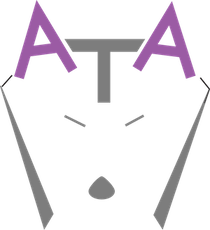Bookkeeping is the process of categorizing your transactional financial information through an accounting system or software. Most people are familiar with the idea and likely utilize bookkeeping in some fashion. Let’s talk about how to take this necessary step and turn it into a valuable tool for understanding your business.
For many small businesses and entrepreneurs, bookkeeping is a necessary evil serving one main purpose – tracking your tax deductions and ultimately your tax liability. It makes sense! Everyone has to pay taxes, and the bookkeeping necessary to do just that takes enough time as is when you’re trying to make money and keep things moving.
As your success grows and you are dealing with more complicated finances, the transactions that make up your financial story become more complicated, and it can become a lot more difficult to track and understand your profitability and cash flow without having set up a bookkeeping foundation that can harness the information in a meaningful way.
Let’s discuss how we can set up your bookkeeping foundation from the onset to support not just your tax liability, but provide a strategy to utilize as you progress forward.
- Understand and track your revenue sources in a detailed fashion from the get go.
It sounds like a simple and easy step to know where your income is coming from, and most business owners and entrepreneurs know enough to make them dangerous. What we want to shoot for is a second and third layer of understanding of what comprises your revenue profile.
The main element of a useful revenue tracking system within your bookkeeping structure is to be diligent about categorizing your revenue based on the type of revenue source it is.
A simple example is any restaurant. All restaurants sell multiple products, whether it is a small burger and fry joint or a large corporate enterprise with locations across the country. By tracking the sales of each individual menu item, they are able to understand which items are most popular and which items drive the most cost to provide. This enables an ability to strategize around these concepts in the future.
- Truly Understand Your Cost of Sales (COS)
Often the largest and most important pool of costs for your business, COS are all of the costs related directly to the creation or providing of goods and services. Think the lumber costs of creating and selling a dining room table, or the salary of an employee that makes house calls for an HVAC repair business. These costs are fundamental to generating your revenue and are critical to track explicitly and diligently.
- Categorize Your Transactions to Generate Useful Financial Statements
A little bit of thoughtfulness and professional assistance ahead of time can provide value for years in the form of organized, strategic bookkeeping that generates well-categorized financial information to drive accurate and useful financial statements.
By proactively identifying the important metrics and components you need to track over time, you get trending financial data where insights start to jump off the page and your financial statements can become tools in your tool box.
- Budgeting and Forecasting are vitally enhanced by a well-designed bookkeeping system
Budgeting and forecasting are instrumental to planning how you allocate future resources and evaluating how your performance measures up.
The proactive thoughtfulness mentioned previously provides an additional benefit – a solid financial foundation to project your future results with clarity and flexibility. Setting up a bookkeeping strategy that facilitates your understanding of key performance areas allows you to set challenging but realistic goals for future performance.
ATA Context – The Meat on the Bone
Bookkeeping can have a certain reputation for being a boring, time-sucking activity that is something necessary to facilitate a means to an end (AKA completion of year-end tax forms). And while it can be those things if set up a certain way, it only takes a little proactive strategic thinking to organize your financial transactions in a way that creates useful information in reporting and analysis for the long haul.
When done best, this has the double-effect of providing insight to promote performance improvements as well as dramatically decreasing the need of an expensive accounting and finance cleanup down the line.


